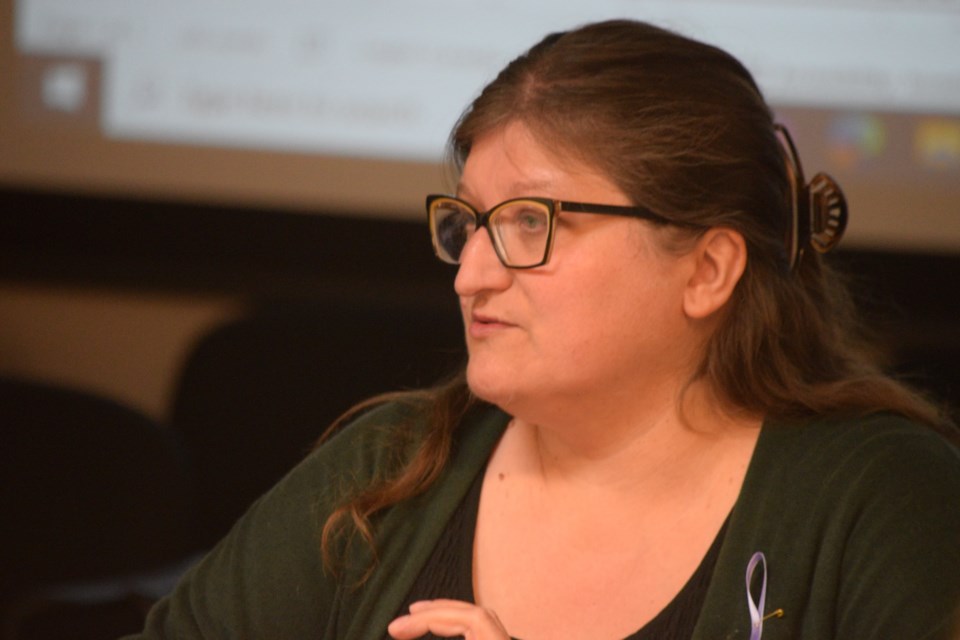BARRHEAD - Barrhead area seniors who are at risk of physical or other types of abuse have a safe place to go to for a few days while social workers or other agencies work on a more permanent solution to get them out of their abusive situation.
That is what Healthy Families, Health Futures elder abuse navigator Michelle Melnyk told Town of Barrhead councillors during their June 15 meeting.
Melnyk was at council to ask councillors to proclaim June 15 as World Elder Abuse Awareness Day.
Healthy Families, Healthy Futures is a non-profit organization that offers several services to "strengthen" families in Westlock, Athabasca and Barrhead. It is the lead agent for the Community Action for Healthy Relationships (CAHR) Network, which specifically addresses the issues of sexual and family violence in the community by maintaining outreach services. The organization's main office is in Westlock, where it offers programming to Westlock and Barrhead, and a suboffice in Athabasca.
She said Healthy Families, Healthy Futures received an unspecified grant that allows them to house one of their clients for up to nine days, at no cost at a Homeland Housing or Barrhead and District Social Housing Association (BDSHA) senior housing facility.
Homeland Housing is a public, not-for-profit organization providing housing and care services for 880 residents across nine Alberta communities, including Westlock, Clyde, Legal and Morinville.
To date, Melnyk said the service hasn't been necessary.
"I'm not a therapist or counsellor," Melnyk said, explaining what she does with Healthy Families, Healthy Future.
She said most of her time is spent helping seniors who have been the victim of abuse navigate the system. "Even calling the RCMP can be intimidating and overwhelming for them."
She added that many of the supports available to seniors require the Internet, which they don't always have access to.
"We provide that tangible support and service, but the most important thing we do is provide a safe space to talk about what is going on," Melnyk said.
She added that although Healthy Futures, Healthy Family did not have specific numbers on the number of seniors suffering abuse in the region, she said, like domestic violence, they know elder abuse is vastly under-reported.
Melnyk said one of her jobs as an elder abuse navigator is to coordinate a community response to senior or elder abuse.
"[It is important] that we build capacity in rural Alberta and how [communities as a whole] respond to it," she said.
Melnyk said upwards of 30 stakeholders, including older adults, service providers, medical professionals, not-for-profit organizations (including victim services, adult learning and Family Community Support Services) and ordinary residents in the Healthy Future, Healthy Family's service area, have met three times since August to share information and foster connections to serve the needs of "older adults" in the region.
"One of the things we are all noticing is that the needs are becoming more complex," she said. "Several of my clients are caring for their grandchildren and even great-grandchildren, so some of the support that I could normally provide them is no longer available."
Types of elder abuse
According to the Alberta Elder Abuse Council Awareness Council, the most common elder abuse reported is emotional, financial, and psychological, followed by physical and neglect.
However, she noted that often, the categories can overlap.
"There are a lot of ways to be financially abusive. It is not just about withholding money," Melnyk said.
She added it is also an issue complicated by the number of people that can be involved.
"There is the dynamic of an older family member or another family member returning to live with their parents, grandparents or other family members, and it is not going particularly well," Melnyk said.
Barry Kerton, TownandCountryToday.com



